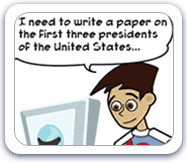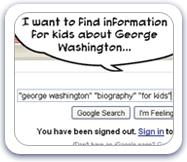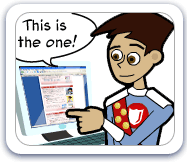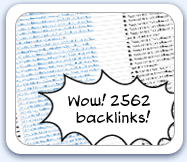Shortcuts:.
Use a Search Engine to Find Resources
Explore Other Ways to Find Resources
Learn more about Using the Web for Research in Maya's blog archives:
Searching for Resources | Evaluating the Information | Using Web Resources
Searching for resources on the Web can be a tedious task if you are not doing it effectively. Here are some tips for finding better resources in less time:
Prepare to Research

Before even touching a computer, you should figure out what you need to know. Write down everything you already know about your topic and what you think you may need to research about it.
If you don’t know anything about your topic, try looking it up in an encyclopedia like Encyclopedia Britannica, or talk to a librarian or your teacher. They may also be able to recommend some good websites to start your research with.
Use a Search Engine to Find Resources

Now that you know what the gaps in your knowledge are, it's time to fill them in. An easy way to look for resources is with a search engine, like Google or Yahoo.
To use a search engine, you enter in one or more keywords, and it returns a list of sites that it thinks are relevant for your search based on a set of rules, such as how many times your keyword appears on the site or how high it is on the page.
It doesn't check to see how useful or credible the information is, so you have to check your search results very carefully to make sure they are useful. To use a search engine more effectively, use several keywords inside “quotation marks” to better focus your search results. Also, use what you learn on one site to help focus your next search.
Find an Expert

If you stumble across a particular name several times while researching your topic, that person may be an expert. You might want to find out more about them or something they may have written about your topic. But be careful about separating fact from opinion!
You can also talk to a teacher or librarian to get the names of a few experts to look up.
Explore Other Ways to Find Resources

Library Research Databases
Libraries subscribe to countless online databases of articles, reports, and even full-text books, and then allow their patrons access for free. Some of them can be accessed online, and some of them you must access from the library's computers.
Web Directories
Web directories list sites according to what category the site fits into, such as Shopping sites, History sites, and News sites. When you search a Web Directory, it looks for matches in the submitted descriptions of each website, rather than in the site's content.
Custom Search Engines
Some search engines, like Google, allow you to create your own custom search engine. You can set up your custom search engine to focus on a specific topic and search sites that you have already approved, before searching the rest of the Web. You can also share your custom search engine and use custom search engines created by other people.
Searching for Resources | Evaluating the Information | Using Web Resources

